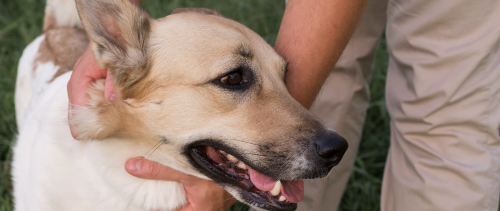
Tips for Choosing a pet
1. Whenever you want to get a pet, learn about the characteristics and needs of each race or species you are considering. Otherwise, you may make an impulsive decision you may regret for years, or may even suffer from the loss of your pet.
2. TThere’s a reason for each breed’s specific appearance and behavior. Herding dogs tend to chase and chew, terriers are usually aggressive because of their hunting nature and often tend to act the same way towards people. Some breeds are instinctively better with children, while others would be a problem for them because of their size and natural instinct. In general, some breeds of cats are very quiet and good-natured, while others are noisy and difficult to control. A 6-week-old potbellied pig may be very funny, but may not be the best pet to have in an apartment when it gets to weigh 115 kg.
3. Some animals adapt easily and can be educated, some others do not. No animal is born knowing what you want or how to live in their environment. You have to educate them.
4. Experts in dog training may provide based opinion about different dog breeds and which is the most appropriate one according to your needs.
5. You should take into account your environment when selecting a pet. Larger dogs need more space to exercise in and outside the house. Dogs need to have some kind of restraint out of the house, a fence or a leash. Cats can be easily kept inside the house, which is why there’s no need to make adjustments on the outside.
6. Your schedule and lifestyle should also be taken into account. Dogs require more attention than cats, birds, fish, pocket pets or caged reptiles; and need to go out to exercise and relieve themselves, unlike other pets. If you do not walk with them, dogs may be more problematic at home.
7. Maintenance costs and responsibilities of owning a pet should be carefully evaluated. It is advisable to talk with family members about these needs and consider the effects that this new tenant will have on other family members. A pet is not a disposable object but a lifetime obligation. Responsibly has to be assumed.
8. Visit a charity association or a center for care and control of animals, but remember that adult pets have already acquired many of their habits, either good and bad, which you may have to face eventually. Often these pets are donated because of their lack of training and bad behavior. Sometimes pets are captured by officers when they roam freely. These behaviors can be usually corrected, if done with patience and techniques. These pets are, however, the ones that most need a good home. Find a pet in these places is not only suggested but also encouraged.
9. Veterinarian doctors are a good source of information and advice for the correct selection of your pet. Stores, breeders and animal shelters are in the business of making you decide to take a pet home and may advise you in your choice.
Still, vets are still a good resource when making such a decision. Make an appointment with your local vet and discuss your interest in acquiring a pet. It will be money well invested.
10. Enjoy your pet, it is your best friend.

